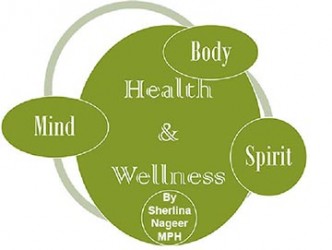There are a lot of ‘invisible’ people in our society – people who, for one reason or another, don’t get the same level of attention as others. These people still live, love, and exist like other Guyanese; they just do so on the edges, sidelines, and cracks of ‘formal’ society. People with disabilities are one such ‘invisible’ group in Guyana. Disabilities include both physical and mental deficits, some of which may be more obvious than others. Some people are born with a disability while others develop/occur later in life due to illness, injury, accident, or the aging process. The fact is that disability is part and parcel of our existence – a condition that, in the blink of any eye, could afflict any one of us who might currently not be experiencing any disability.
 People with disabilities in Guyana still face a great deal of challenges on a daily basis, more so than other Guyanese. Yes, there is a National Commission on Disability. Yes, there are schools for children with special needs. Yes, Guyana has signed numerous international treaties regarding the rights of disabled people. Yes, some progress has been made over the years; one positive change has been a shift to a rights-based approach instead of the limited medical model that had prevailed previously. However, a great deal of work still needs to be done to provide Guyanese with disabilities with the best quality of life possible.
People with disabilities in Guyana still face a great deal of challenges on a daily basis, more so than other Guyanese. Yes, there is a National Commission on Disability. Yes, there are schools for children with special needs. Yes, Guyana has signed numerous international treaties regarding the rights of disabled people. Yes, some progress has been made over the years; one positive change has been a shift to a rights-based approach instead of the limited medical model that had prevailed previously. However, a great deal of work still needs to be done to provide Guyanese with disabilities with the best quality of life possible.
Part of the problem lies in how people with disabilities are viewed by others. Some scorn or avoid them, unable or unwilling to acknowledge them as full-fledged members of society still. Some are uncomfortable around others with disabilities, unsure of how to act or treat them. Some are caring and empathetic, but often that’s not enough. Too many Guyanese with disabilities continue to suffer disproportionately, unable to access education, healthcare, employment, and other social goods.
Children with physical disabilities – such as blindness, deafness, musculoskeletal disorders etc- usually have no mental disability and can perform just as well or better than their peers academically. This should be obvious and not need stating, but unfortunately some people still hold the uninformed belief that a disability in one area means that disabilities exist in other spheres as well. Training of teachers on how to successfully handle students with physical disabilities, and how to integrate them into mainstream classrooms is woefully lacking. A national study on disability done in 2005 by the National Commission on Disability found that almost half – 42% – of all persons with disabilities under age 16 had never attended school.
The schools that do exist for children with disabilities are all on the coastland, leaving affected children from the hinterland regions without anywhere to turn (unless they make the long, expensive journey to town, which many cannot afford). In fact, this study found that up to 80% of disabled persons in the hinterland had not been able to access any treatment or therapy at all!
Mental disabilities can be more complex to deal with than physical deficits in some instances, with a wide spectrum of conditions falling under this umbrella label. Again, unfortunately, little training exists in Guyana to provide teachers, caregivers, and family members with the skills needed to properly cope and interact with such individuals.
As such, persons with mental deficits are often ignored and left by the wayside of ordinary Guyanese society, treated no better than furniture at times. In other societies however, such individuals often lead quality lives with some assistance from others who have been trained to deal with them. (Also noteworthy is that fact that there are other conditions – such as various forms of mental illness – which can incapacitate persons temporarily. Not all such conditions are currently recognized as disabilities, worthy of attention and intervention.)
In Guyana, almost half (44%) of those surveyed in 2005 by the National Commission on Disability had experienced negative attitudes or behaviours from others as a result of their disability. Guyanese with disabilities regularly experience discrimination in multiple arenas – from minibus drivers who refuse to stop for them on the street, employers who terminate them when they become disabled or refuse to hire disabled people in the first place, to police who refuse to take their complaints of victimization seriously, and public facilities that remain off-limits to them.
The many unpaved roadways and scarcity of streets with sidewalks make getting around immensely challenging even for those without any disabilities, while the lack of wheelchair ramps, sign-language, and braille or voice-over technology for media and other information sources combine to further marginalize Guyanese with disabilities. Affected people and their family members/loved ones often struggle in isolation, with their physical, emotional, and economic burdens.
A society dedicated to ensuring health and wellness for all its citizens must address the needs of those must vulnerable, first and foremost. As such, people with disabilities are among the population groups most deserving of attention.
Many of these individuals have the potential to make positive and valuable contributions of society, and they all deserve the same access to all the public good, services, and life opportunities as other Guyanese. Paying attention to the preventable causes of some disabilities and investing in care, education, and support early on can have significant payoffs. Simple, low-cost solutions exist which can make huge improvements in disabled persons’ quality of life.
And even in instances where interventions are more costly, the investment is worthy if one keeps in mind that, as the saying goes – “There but for the grace of God, go I.” Charity isn’t the only thing required however; people with disabilities can be just as skilled, entrepreneurial, business savvy, and successful as others. They just need equal opportunities comparable to all other Guyanese, and policies and programmes that protect and safeguard their rights.
Sherlina can be contacted at ssnageer@yahoo.com




